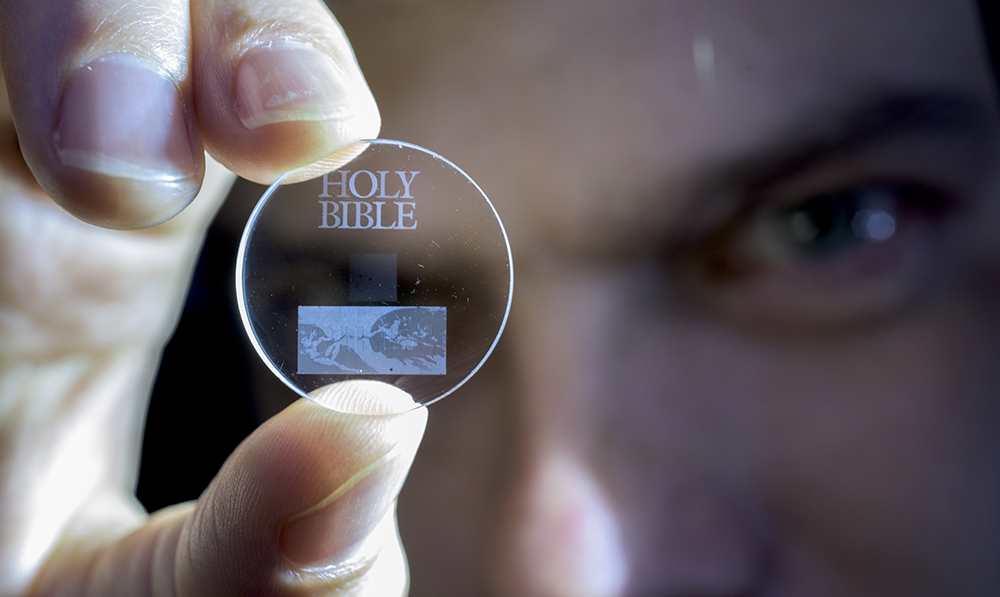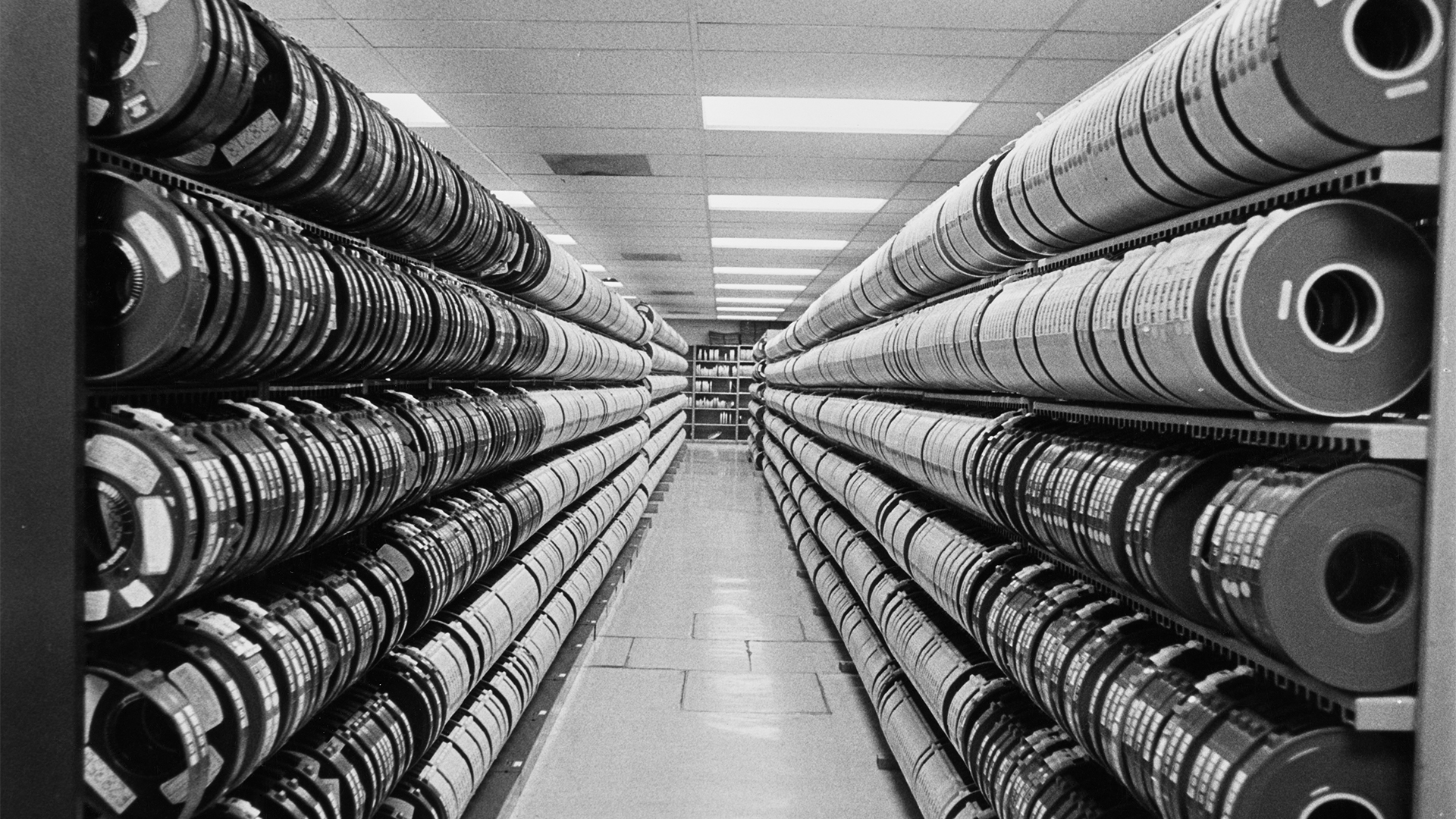
Sign up today and you will receive a free copy of our Future Focus 2025 report - the leading guidance on AI, cybersecurity and other IT challenges as per 700+ senior executives
You are now subscribed
Your newsletter sign-up was successful
A revolutionary storage medium, capable of holding 360TB of data and withstanding extreme temperatures, will allow humanity's life and works to survive for "billons of years", its creators say.
Scientists from the University of Southampton's Optoelectronics Research Centre (ORC) have referred to the breakthrough technology, which uses nanostructured glass, as being akin to the memory crystals seen in Superman.
Known as 5D, the medium takes its name from the process of five dimensional digital recording that allows information to be stored on specially created glass by femtosecond laser writing.
The scientists say their ultra-compact technology has a thermal stability up to 1,000C, which at room temperature gives it a "virtually unlimited lifetime".
The prototype shown above measures just 25mm in diameter smaller than a 2 coin (28.4mm). Speaking to IT Pro, ORC team member and PhD student Ausra Cerkauskaite said the researchers would look to produce a standard-sized optical disc (12cm), which would then "ultimately fit about 360TB" more than 7,000 times a 50GB double-layer Blu-ray disc.
"Despite all technological progress it is still difficult to securely store large amounts of information over even relatively short timescales of 100 years. Our solution allows completely eliminating this problem. And this does fascinate us," Cerkauskaite said.

5D could be the start for a new era of colossal data archiving. The team at the ORC believes its technology could be highly useful for national archives, museums and libraries to preserve their records, photos and other documents.
Sign up today and you will receive a free copy of our Future Focus 2025 report - the leading guidance on AI, cybersecurity and other IT challenges as per 700+ senior executives
The researchers first demonstrated an experimental version of the technology in 2013 when a 300KB digital copy of a text file was successfully recorded in 5D.
Now, they have managed to write historical and cultural work such as the Universal Declaration of Human Rights (UDHR), Newton's seminal work Opticks, the Magna Carta and the King James Bible to 5D.
"It is thrilling to think that we have created the technology to preserve documents and information and store it in space for future generations," said professor Peter Kazansky, from the ORC. "This technology can secure the last evidence of our civilisation: all we've learnt will not be forgotten."
The researchers are due to present their findings at SPIE Photonics West, an international optical engineering conference in San Francisco, this week.
The team is now looking for industry partners to further develop and commercialise the technology.
Cerkauskaite told IT Pro: "Our main goals now are to improve the speed of writing and develop the technology of microscope-free read-out drive that would increase the impact towards the realisation as mass-market technology."
Images: University of Southampton, Optoelectronics Research Centre
-
 Wasabi has big plans for its EMEA partner program in 2026
Wasabi has big plans for its EMEA partner program in 2026News The cloud storage vendor’s new-look channel initiative includes a new Systems Integrator program
-
 Magnetic tape is going strong in the age of AI, and it's about to get even better – new design materials and capacity boosts mean it's still an enterprise favorite
Magnetic tape is going strong in the age of AI, and it's about to get even better – new design materials and capacity boosts mean it's still an enterprise favoriteNews Magnetic tape storage might seem like a relic of a bygone era, but it’s still going strong in 2025 – and new upgrades mean it’s set to get even better.
-
 Dropbox is adding a range of handy new AI features – here’s what users can expect
Dropbox is adding a range of handy new AI features – here’s what users can expectNews Long-awaited features from Dash AI will be integrated within Dropbox
-
 Seagate and Acronis are teaming up to drive MSP storage capabilities
Seagate and Acronis are teaming up to drive MSP storage capabilitiesNews Acronis will incorporate Seagate’s Lyve Cloud Object Storage into its archival storage offerings to help MSPs meet AI-driven data demands
-
 Work and innovate everywhere
Work and innovate everywherewhitepaper Protection across AI attack vectors
-
 The future of outstanding power efficiency
The future of outstanding power efficiencywhitepaper An essential guide to help determine a clear path to power effiency, robust data security, and best in-class versatility
-
 Cyber-resilient data storage for everyone
Cyber-resilient data storage for everyoneWhitepaper Improve cyber resilience and optimize performance
-
 Sustainability is more than a flash-in-the-pan topic for the data storage industry
Sustainability is more than a flash-in-the-pan topic for the data storage industryAnalysis Rising energy costs and concerns over the environmental impact of data centers are prompting a shift away from power-hungry disk drives

